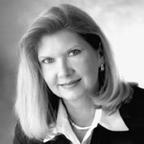
Of course, 2002’s under-40 leaders probably remember little of the 1960s. I thought I could recall those times pretty well. But the closer I look, the more I’m impressed by how different they were from today.
It was a puzzling, contradictory era. Human beings were rocketing into space; America’s inner cities were exploding. We were treated to a never-ending array of consumer goods, along with the new phrase “a culture of poverty,” and the revelation that more than a fifth of us lived in it. American know-how was producing marvels like the laser, minicomputers, satellites, and the Pill, and Rachel Carson was crystallizing the modern environmental movement in Silent Spring. American women had more educational and career options, while Peoria’s Betty Friedan was puncturing the bubble of the happy housewife in The Feminine Mystique. U.S.A. and U.S.S.R. stood toe to toe on the brink of war; America slipped deeper into Vietnam.
If you had asked Americans in 1962 to identify the greatest threat to our future, most would have said communism. Others would have said the struggle for civil rights was more important to our destiny.
We all know what happened between 1962 and 2002. We vanquished the fascism disguised as global communism. We made real progress in civil rights, though we didn’t stamp out the underlying demon of racism. Democracy won. We did it with leadership.
Our leaders were imperfect, like the rest of us. Our success was collective: millions of Americans leading their businesses, organizations, schools, and families with integrity, faith, and determination—doing their best to make the future better for leaders to come. It wasn’t just Big People working on Big Issues. The momentum that our leadership gathered, from classroom to workshop to the chambers of diplomacy, was unstoppable.
Now it’s a new century, with new leaders and no shortage of problems. In 2002, we observe one of the most potent changes of the last 40 years: the emergence of the Information Age, now heading to the Knowledge Age. It is at once our strength, our gift to human civilization, and I think one of the biggest challenges for our 40 Under Forty leaders.
T.S. Eliot said, “Where is the knowledge we have lost in information?” With the endless clutter the Information Age brings into our lives, the question seems prescient. As Eliot observed, there is a hierarchy, beginning with information, from which we must extract knowledge, from which we derive wisdom.
The last item, wisdom, is essential for good leadership. Because of the information glut, finding and following the wise course is harder than ever before for leaders. There is a kind of irony here. More information helps us make better decisions, but it also brings the challenge of sorting through torrents of data. In the past, the critical core of wisdom might have been more directly accessible to leaders.
Tomorrow’s leaders will have to be technologically skilled to separate what’s valuable from all of the data. But technical literacy won’t be enough. The so-called “soft” skills—listening, speaking, writing, and the ability to work in teams will be more important than ever. And the timeless qualities of integrity, vision, and citizenship will still be necessary to build a foundation of trust.
Every age has its challenges, and every generation has its strengths. I see so many strengths in today’s 40 Under Forty leaders. They’re part of the first generation of Americans who take it as a matter of faith that we’ll only succeed as a multiracial, multiethnic society. This year’s 40 Leaders are technically gifted, but have also shown a commitment to their communities (both are qualities we look for when we select them). They’re fresh faces, sure, but they’re already making their marks.
Four decades ago, the oldest of these young leaders was born. It’s hard even to recognize the threads that tie then with now. The world of 40 years ago looks pretty strange today. What will the world look like in another 40 years? When we look back to 2002, will we say, “We built a prosperous society and mastered our problems because we had good leaders?” From the looks of this group, I’m counting on it.
If there is any continuity between the past, present, and future, it has to be the need for leadership. In these pages, you’ll be introduced to 40 young leaders with the skills, integrity, and energy to take up the challenges of the future. Congratulations, class of 2002, and good luck … in the next 40. IBI

